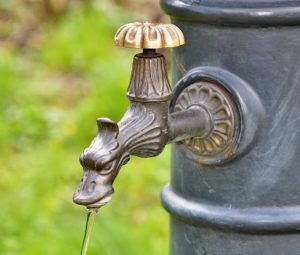
priv·i·lege
noun
a special right, advantage, or immunity granted or available only to a particular person or group.
Oxford Languages
Privilege is a funny thing. If you are born to it, you may be completely unaware of it, unless someone outside your privileged group points it out to you. This can be a painful experience, given that Western society has a tendency to equate good fortune with virtue, and views the disadvantaged with suspicion. It can be hard to realise that winning the birth lottery in one way or another is not a sign of excellence or intrinsic superiority.
As an example, if you live in a major Canadian city, chances are you do not have to spend any time worrying about the potability of the water that flows out of your taps. We assume that our water is safe to drink, absent any kind of accident or misfortune. And yet there are still quite a few Indigenous communities in our country who live under permanent boil-water orders. How often do we think about our privilege, and what are we doing to make things better for those who don’t have it?
In another sphere, if you appear physically feminine, you may be concerned about walking outside alone at night – because if you are attacked, chances are you will be blamed for putting yourself in harm’s way. The same might be true if you appear to be gender non-conforming. In many places same-sex or interracial couples might be fearful of holding hands in public. How often do those who don’t belong to any of these groups think about their privilege? How often do they step up as allies to those who might be threatened?
The purpose of this thought progression is not to make you feel bad about any privilege you may have. If you are reading this, that means you have access to the Internet, so you already have some privilege compared to many others in our society, while there are probably ways in which you have less privilege than others. To quote the feminist Elizabeth Martínez, it’s not the Oppression Olympics – no person’s suffering is going to win a gold medal over those of others. But it is always a good idea to be aware of one’s own assumptions – as Mrs. Pollock, my son’s Grade Six teacher, told him many years ago, when you assume, you make an ass of you and me.
A big assumption is that the majority experience covers everyone, whatever the situation may be. This can be convenient and will work most of the time (that’s why it’s called the majority), but it completely erases the experience of those who don’t fit in the mold. One aspect of privilege is that it allows the privileged person to ignore any pain this might inflict on the minority person experiencing it. That is why it can be so painful for a privileged person who sees themselves as kind and virtuous to have their attention called to this fact – if they have been hurting others and been completely oblivious that they were doing it, what does it say about them? Are they now a terrible person?
That, of course, will depend on what they do with this new knowledge. To quote the great Dr Maya Angelou, do the best you can until you know better. Then, when you know better, do better.
For those of us who were born with many of the privileges of Western society, especially if we happen to have light-coloured skin and a good education, it’s important that we be aware of the privilege this gives us, and to use this power for good. Not as white saviours – those have caused incalculable damage in the world. White Westerners swooping in to tell Indigenous people what they need, whether it’s wells or schools or Jesus, rather than listening to hear what they want (and listening to the less privileged members of that society, as well), are exercising a particularly pernicious form of privilege. But if we are able to shut up and listen (the first part is often the hardest for those who have been accustomed to being listened to, always), we might be able to expand our minds and hearts with ways of seeing the world we didn’t have access to before. We might be able to do our part towards repairing this damaged, beautiful world, and do it in ways that are healing to all.
That would indeed be a privilege.
